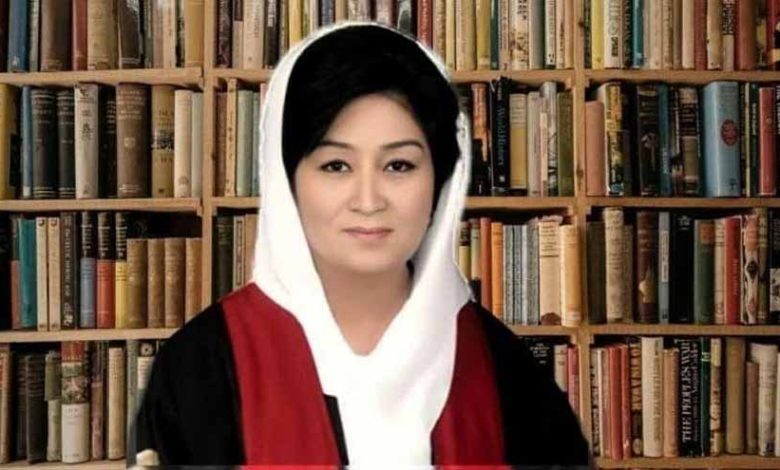After the 26th Amendment, judges must stay away from cases that are similar to theirs. Hilali, Justice

Justice Musarrat Hilali of the Supreme Court (SC) said on Thursday that justices who were elevated as a result of the 26th Amendment to the Constitution shouldn’t be on the bench when petitions contesting the amendment are being heard.
Hearings on the petitions contesting the 26th Amendment have resumed before an eight-member constitutional court led by Justice Aminuddin Khan.
Justices Jamal Mandokhail, Muhammad Ali Mazhar, Ayesha Malik, Hasan Azhar Rizvi, Musarrat Hilali, Naeem Akhtar Afghan, and Shahid Bilal are among the other members of the bench.
Senior attorney Munir A. Malik came before the court during the hearing on behalf of the Balochistan Bar.
Although the audio was ambiguous, Justice Aminuddin acknowledged Malik’s prior attempt to communicate via video link from Karachi. Malik clarified that his plea had to do with live streaming, which the court pointed out is now infructuous because of a previous ruling.
Advocate Hamid Khan’s arguments were accepted by Malik, who also promised to make more arguments.
Malik contended that a full court might have been established prior to the amendment and asked the existing bench to provide guidelines for creating a full court with all of the Supreme Court’s judges.
Justice Muhammad Ali questioned if the current eight-member bench had the authority to assemble a full court, while Justice Ayesha Malik questioned whether there was any obstacle to doing so.
Malik retorted that the bench still had the judicial power to make such a ruling regardless of whether it was regular or constitutional.
CB emphasizes the need to rely on the current constitution until it is amended.
The senior attorney insisted that since the constitutional bench possessed judicial authority, there would be no infraction.
Given that the court frequently depends on the Constitution rather than modifications, Justice Ayesha Malik questioned whether the constitutional bench should exercise its judicial authority to establish a full court.
Justice Muhammad Ali Mazhar asked how Article 191A could be circumvented, and Justice Ayesha responded that the Constitution must serve as the foundation for any challenge to the 26th Amendment.
Although the Supreme Court’s jurisdiction was not contested, Justice Jamal Mandokhail noted that the Judicial Commission has the authority to appoint any judge and assemble benches however it sees right.
Justice Mandokhail stated that the Judicial Commission has the power to construct any bench, while Justice Aminuddin explained that the current bench was formed based on the availability of judges.
A crucial query was posed by Justice Musarrat Hilali: how can the present bench establish its own jurisdiction without considering the rationale behind the 26th Amendment? Judges promoted after the 26th Amendment, she claimed, shouldn’t be on the bench.
In response, Justice Mandokhail questioned whether these justices were imported from another nation and said that he and the chief justice had advocated for all judges to be included on the constitutional bench. He questioned, “Would you be satisfied in such a situation?”
By asking who would lead such a bench—the Chief Justice designated under the 26th Amendment—Justice Mandokhail invited the attorneys to propose a course of action that would permit the inclusion of all judges on the bench.
Justice Mandokhail said the arguments showed a lack of confidence in the current constitutional bench, while Justice Aminuddin commented on the severe criticism the court has received. He claimed that all Supreme Court justices had embraced the 26th Amendment, whether they wanted to or not.
The hearing was later postponed until Monday, October 13.